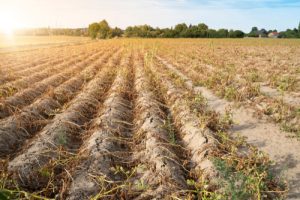
U.S. Rep. Dan Newhouse (R-WA) joined a bipartisan, bicameral contingent of Pacific Northwest lawmakers in calling on the U.S. Department of Agriculture (USDA) to implement critical assistance that will provide relief to the agricultural producers in the Pacific Northwest impacted by severe weather events.
To support those efforts, Congress provided $10 billion in agricultural aid — designated for under Rep. Newhouse’s 2020 WHIP+ Reauthorization Act, H.R. 267, which was signed into law in September as part of the larger Extending Government Funding and Delivering Emergency Assistance Act, H.R. 5305.
“As USDA works to swiftly implement the program, we write to urge you to utilize the full eligibilities provided in the statute to assist producers in our states hit hard by extreme heat, drought, wildfires, smoke exposure, and related crop quality losses,” Rep. Newhouse and his colleagues wrote in an Oct. 18 letter sent to U.S. Secretary of Agriculture Tom Vilsack. “Additionally, we request that USDA offer guidance as soon as practicable on what types of documentation will be needed for farmers so that they can be ready and able to access this assistance.”
The lawmakers pointed out that many of the producers who suffered some of the greatest heat-related losses were either located in counties not covered by the drought designations, experienced losses not covered by drought assistance programs, or both.
“To better address the extent of these losses, Congress provided new flexibilities in H.R. 5305 to amend the previous Wildfire and Hurricane Indemnity Program-Plus (WHIP+) authorization, including coverage for losses related to excessive heat and smoke exposure for wine grapes — and inclusive of crop quality loss and damage to on-farm stored commodities,” wrote Rep. Newhouse and his colleagues, who included U.S. Sen. Patty Murray (D-WA) and U.S. Reps. Cathy McMorris Rodgers (R-WA) and Jaime Herrera Beutler (R-WA).
As USDA drafts guidelines for the new program, they asked Secretary Vilsack to work with producers to include temperature-based thresholds for eligibility to capture heat-related losses, similar to extreme temperature models utilized in the Emergency Livestock Assistance Program.
“This will be critical for berry crops, shellfish, tree fruits, potatoes, dairy products, and beef cattle in parts of the Pacific Northwest which suffered some of the greatest yield and quality losses as a result of the severe heat wave, but may not operate in counties covered by D3 or 8-week D2 drought designations,” they wrote.



